Have you ever heard people using the term windfall to describe unexpected good fortune, especially financial gain?
The word windfall traditionally refers to a piece of fallen fruit, knocked down by the wind.
The use of the word to describe unforeseen pennies from heaven may trace its origins to a terrible storm which struck Ireland on the night of January 6, 1839.
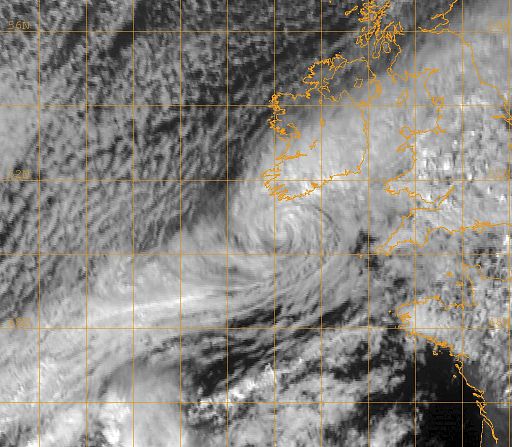
Table of Contents
The Night of the Big Wind
This infamous night is often referred to in Irish folklore as the "Night of the Big Wind" or "Oíche na Gaoithe Móire" in Irish or Gaelic (pronounced ee-ha nah gwee-ha mo-rah).
All who experienced the event remembered the chaos and sheer terror caused by the unprecedented hurricane force winds.
I first came across references to the "Night of the Big Wind" while completing research for my never-ending-work-in-progress novel, set at the time of the Great Hunger.
This year terrible storms and gale force winds have once again battered the west coast of Ireland. These recent dangerous weather patterns reminded me of the ferocious Irish storm of January 1839.
An Irish Hurricane?
Snow fell on Saturday January 5 1839, followed by unusually calm, warm weather the following day. Unknown to all, a deep depression was forming in the Atlantic ocean. Warm and cold fronts soon battled it out over the unsuspecting island with catastrophic results.
On that fateful night, gale force winds howled, as never before. Rain and hail battered the land. Cyclonic gusts tore across the fields, scattering corn and haystacks, sucking burning embers skywards through chimneys.
Many lost their savings, when their thatch roofs were shredded by the winds. A favorite hiding place for money was in the rafters beneath the thatch.
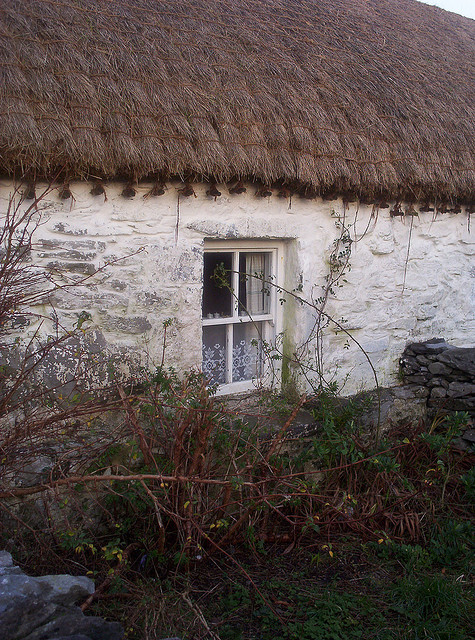
Image Credit
Widespread Devastation
Between 250 and 300 people lost their lives in the disaster. Massive storm surges caused inland flooding.
What little survived the wind damage soon rotted in the soggy mess. Stone boundary walls surrounding farmers' fields were blown apart, allowing livestock to wander away. Sheep were blown off the mountains and lost at sea.
Millions of wild birds were killed, causing near extinction for some species.
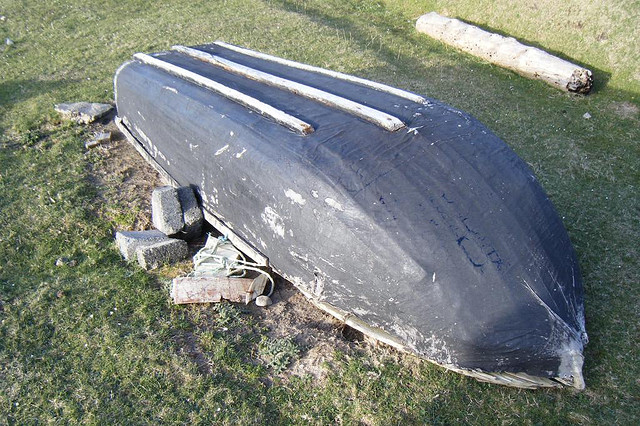
Currachs, traditional Irish fishing boats, were usually left resting on beaches and dunes overnight. These simple vessels, made by stretching and tarring canvas over a wooden frame, were torn asunder and lost forever. The impact on Irish fishermen was immense.
It is estimated that up to one quarter of all homes on the island were seriously damaged or destroyed. In those days, no Irish tenant had the luxury of insurance. They alone bore the full cost of rebuilding their meager homes.
Old Irish Poem
An old Irish poem about the Night of the Big Wind talks about its devastating effects on the town of Drumnacanvy, Co. Armagh.
"It came and it came and it came,
Like all the devil's bellows loosed out of hell,
Howlin' and screamin' and cuttin' an callin.'
It came and came, and came upon Drumnacanvy."
The cause of the storm remained a mystery to poor Irish farmers, who blamed it on the fairies, even claiming God and the devil fought over Ireland that night.
"Aye! Surely the devil fought that night wi' The God of heaven
And God stayed not his mighty hand in torrent, rain, and thunder.
Never again does common man want to see their titanic struggles,
As he thinks upon the all forlorn, that plundered land of Drumnacanvy".
The complete poem is available on the Wikipedia page for Drumnacanvy.
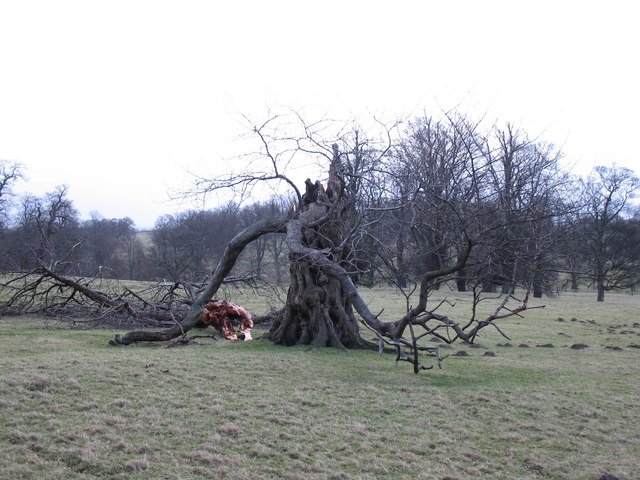
No Recovery by 1845
When starvation loomed merely six years later, many had not recovered from the losses they suffered in 1839.
The devastation caused by this storm was overwhelming for a poverty stricken nation. Poor Irish people had little reserves to fall back upon when disaster struck again with the failure of the potato crop in 1845.
Many people often wonder why the Irish were unable to catch enough fish to survive during the years of the Great Famine. After all, the country is an island.
The answer may be linked to the Night of the Big Wind. Many boats, piers and fishing gear were lost that night, and by the time the Famine struck in 1845 they had not been replaced.
Financial Windfalls
If the impact of this storm was so catastrophic, then how might a financial windfall be linked to it?
The answer lies in a strange fact related to the British government's introduction of old age pensions in 1909. All those over seventy years of age were entitled to a pension of five shillings per week.
However, many poor Irish had no birth certificates or proof of their age. Approval for an old age pension was dependent upon the ability to recall the Night of the Big Wind.
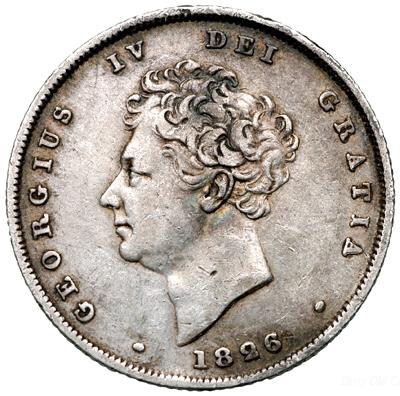
And so a new phrase came into being: "You came into a little windfall" if you received your five-shilling old age pension payment.
"It's an ill wind that blows no good," is another old saying that comes to mind. I wonder if its origins also lie in a link between the Night of the Big Wind, and the granting of old age pensions.
Thanks for following my recipes and ramblings.

Slán agus beannacht,
(Goodbye and blessings)
Mairéad -Irish American Mom
Pronunciation - slawn ah-gus ban-ock-th
Mairéad - rhymes with parade
Here are some more recipes and ramblings you might enjoy...
- From Foreign Tuber to Irish Treasure: The Arrival of the Potato in Ireland
- Furrowed Fields
- What Is A Floury Potato?
- When Life Gives You Lemons
- The Famine Pot - Irish Historical Documentary on DVD
- Traditional Irish Potato Soup
- Ireland Is Not Just About Potatoes Anymore
- Cheesy Irish Potato Cakes for Halloween


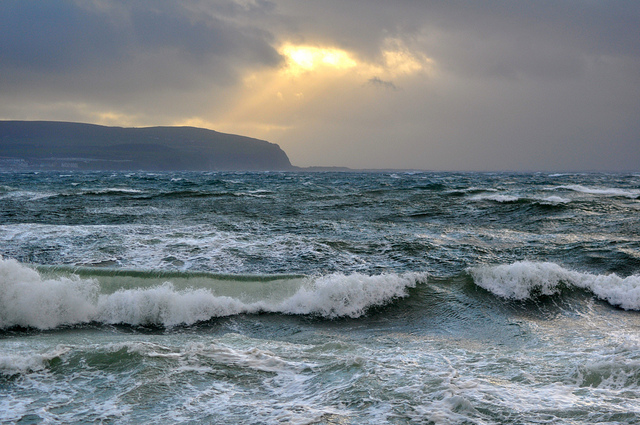

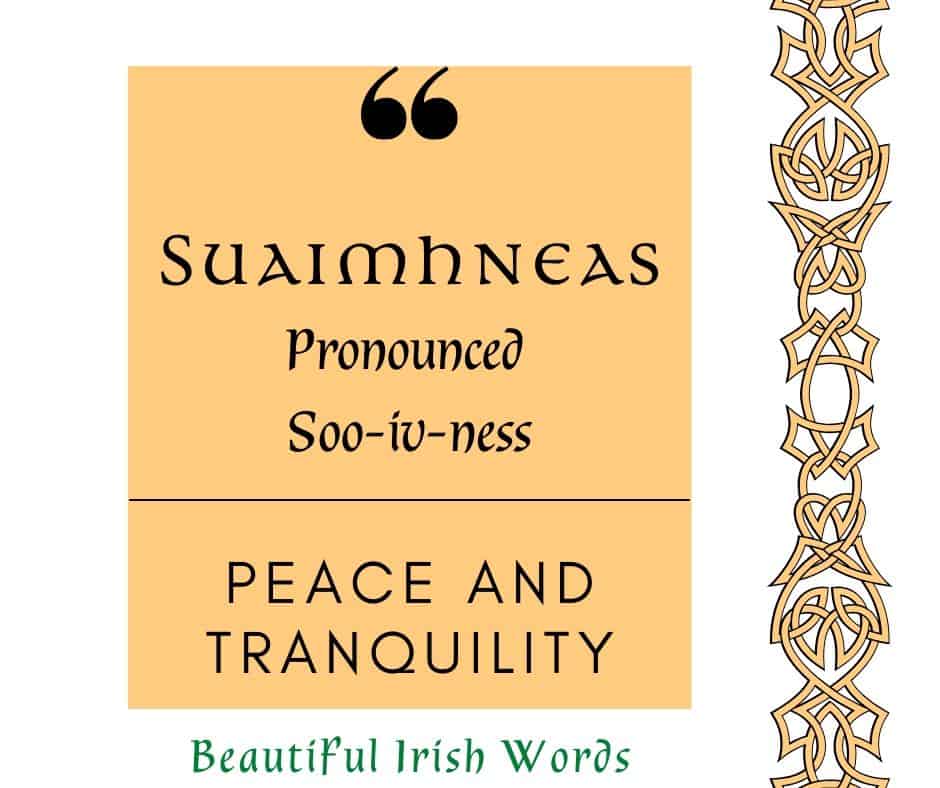
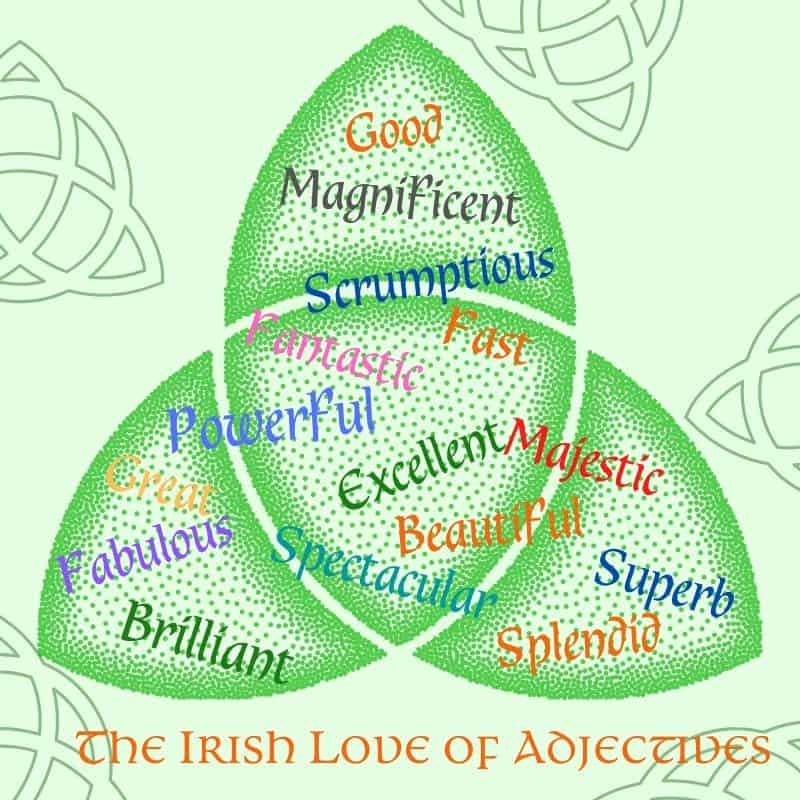




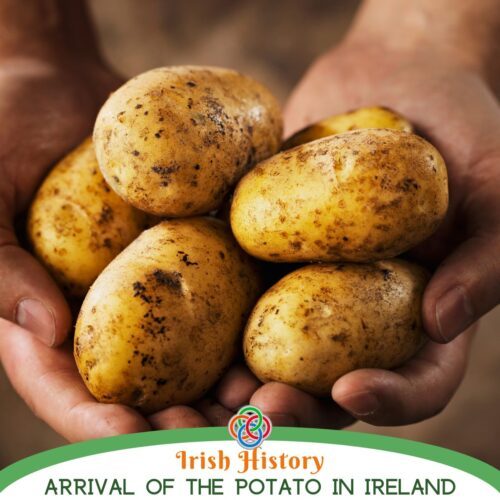
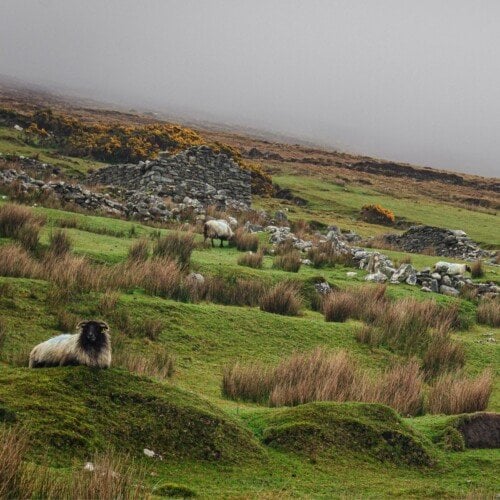






michael o' sullivan
Well done.Great report.The recent storm ,Christine,was not a patch on the 1839 storm. Why are most storms named after women as its usually men that are most destructive.
Irish American Mom
Thanks, Michael. Hurricanes in the US are named after men and women, but somehow the bad storms do always seem to bear women's names. Maybe that's just Mother Nature having her say.
All the best,
Mairead
Catherine Teahan
I had only heard about the night of the big wind last winter, when we were having all those awful storms. I enjoyed reading this, and I never realized that's where the "windfall" saying came from. Thanks for sharing!
Catherine Teahan
Irish American Mom
Catherine - Glad you enjoyed this post - a blast from the past of stormy proportions. The link between the term windfall and the Night of the Big Wind was intriguing to me too.
All the best, and thanks so much for stopping by.
Mairéad
Marge
Dear Mairead,
One set of my 3xgrgrandparents in Co. Cork were married exactly 2 months to the day of the Big Wind. I first heard of the Big Wind through the same named novel by Beatrice Coogan. Loved it!
Irish American Mom
Hi Marge - I haven't read this book by Beatrice Coogan, but I am adding it to my reading list. Thanks so much for the reading tip.
All the best,
Mairéad